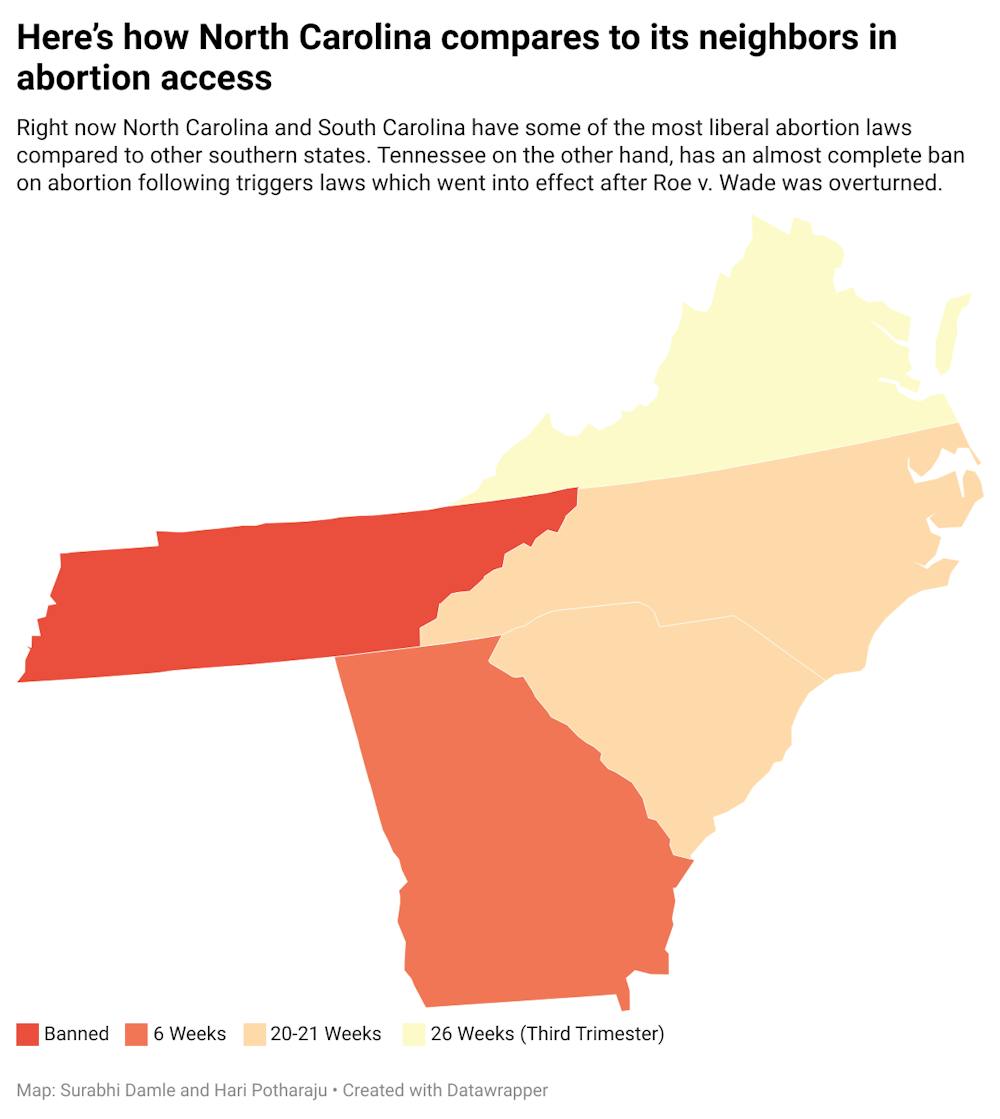Abortion affordability
Just because abortion is still legal in N.C. does not mean it is necessarily accessible, Justine said.
“When we’re talking about the impact of abortion bans, it really is falling hardest on people with low income,” Rivera said. “It’s falling hardest on people who lack access to healthcare in general, and we know that that is often communities of color, people of color, because of historic and systemic barriers to accessing just basic primary care, never mind reproductive health care.”
CAF provides financial aid to people accessing abortions in North and South Carolina, no matter what state they are coming from. The nonprofit directly pledges money to the patient’s abortion clinic and helps connect them with additional funding for outside expenses if needed.
Since the Dobbs decision, Justine said that CAF has seen a sharp increase in calls requesting funding.
“On a typical week prior to Dobbs, we were getting around 50 calls a week, which is still a tremendous number, truly,” she said. “But in the last couple of weeks, we’ve seen closer to 80 or 90 calls, and that is a huge jump, considering that we are also unable to fully fund every caller that gets in touch.”
In N.C., the average abortion pill costs $360. A surgical abortion can cost anywhere between $340 and $1,400 depending on the type of procedure and number of weeks of pregnancy.
People seeking abortions have to consider these costs alongside the cost of gas or airfare, travel, lodging, childcare and missing work for one or more days, Gavin said.
“Now we’re seeing the costs of accessing care exasperated, especially for folks who are traveling from out of state or even within North Carolina,” she said.
According to Rivera, more than half of the recent patients at Planned Parenthood’s Asheville Health Center have traveled from out of state.
To get the day's news and headlines in your inbox each morning, sign up for our email newsletters.
Abortion legislation and education
People seeking an abortion in N.C. are required by law to get counseling from their abortion provider 72 hours before their abortion, which prolongs the wait before accessing care.
Additionally, people under the age of 18 need permission from a parent or guardian to get an abortion. They have the option of bringing it to a judge for a judicial bypass if it is not possible to get parental approval.
Getting access to an abortion can also be complicated by a lack of information and guidance through the legal processes.
NC Teens For Abortion Access fundraises for CAF and provides information and news about abortion access in N.C. through their social media account.
“We want to be able to educate others because we want to help people develop their own opinions on abortion access,” Caroline Zhou, a senior at Chapel Hill High School and member of the organization, said. “That’s why we’re providing them with this information.”
Because the members of NC Teens for Abortion Access are still minors, Zhou, along with fellow members Ruoyan Chen from East Chapel Hill High School and Tanvi Gaur from CHHS, said they want to do what they can to advocate for abortion access until they can vote.
The upcoming Nov. 8 midterm elections will be important for abortion rights, Rivera said, so knowing who is running for office and their stance on abortion is important for voters who care about abortion access.
@eliza_benbow
@DTHCityState | city@dailytarheel.com
Eliza BenbowEliza Benbow is the 2023-24 lifestyle editor at The Daily Tar Heel. She has previously served as summer university editor. Eliza is a junior pursuing a double major in journalism and media and creative writing, with a minor in Hispanic studies.




